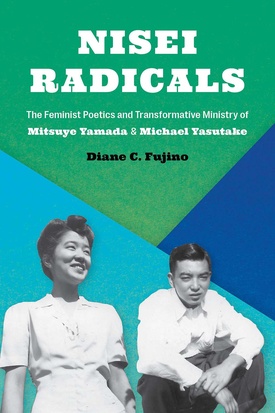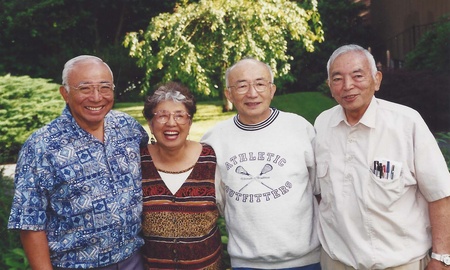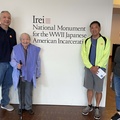It took an engaged scholar like Diane C. Fujino to tell the story of the lives of two extraordinary siblings—poet Mitsuye Yamada and Reverend S. Michael Yasutake—with a deep dive into turbulent Nisei waters. Fujino’s previous work has included books on such audacious Japanese Americans as civil rights activist Yuri Kochiyama and prominent Black Panther member Richard Aoki. Always managing to cast a new light on Japanese American history, Fujino’s latest book, Nisei Radicals: The Feminist Poetics and Transformative Ministry of Mitsuye Yamada and Michael Yasutake, again challenges the traditional perception of Nisei as submissive assimilationists who became part of the so-called “model minority” following a war that threw them into concentration camps. This time, Fujino has managed to find two unique individuals from the same family who demonstrated this Nisei rebelliousness in separate but equally vigorous ways.
Fujino spends the first chapters exploring the tumultuous events of both siblings’ early family lives in an attempt to determine how their respective experiences framed their journeys toward activism. The themes of separation, struggle, and conventional values dominate their childhoods, which could help explain both siblings’ lifelong rejection of racist and sexist politics in reaction to the struggles they endured. Surviving three years of incarceration without their father, Kaichiro (Jack) Yasutake, who was imprisoned at two Department of Justice camps, they managed to persevere with their mother Hideko and two other siblings, Tosh and Joe, at the Minidoka camp in Idaho. The years of imprisonment, along with Mike’s insistence on resisting the draft, inevitably provided another important turning point in the direction of idealistic pacifism and racial justice.
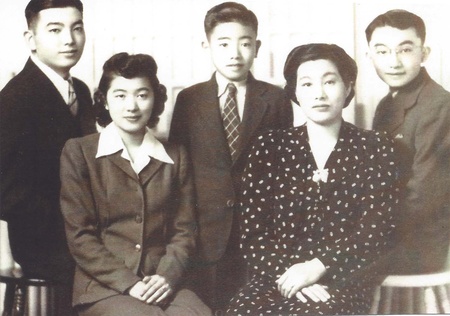
While at Minidoka, Yamada wrote poems that resulted in her groundbreaking book, Camp Notes. Published in 1976, well after Yamada managed to survive a terminal diagnosis of emphysema, the book ignited her prolific career as a teacher, political activist, and feminist. Never leaving her poetry behind, Yamada recently celebrated the publication of her latest book, Full Circle, that she wrote as she approached her amazing age of 96.
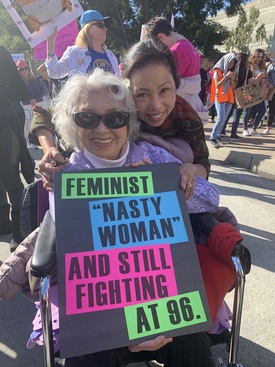
During her marriage to Yosh Yamada while raising four children, she ventured into local, national, and international politics by becoming involved in everything from fair housing to international human rights. Aroused by the Third World women’s movement in the 70s, Yamada dared to go beyond the Japanese American identity scripted in Camp Notes to forge a dynamic interracial pan-Asian feminist consciousness through her involvement in the Multi-Ethnic Literature of the United States (MELUS), International Women’s Year, and the first National Asian/Pacific Women’s Conference in 1980. In 1987, Yamada was elected to the National Board of Directors of Amnesty International, helping to organize the first Intersectional Conference on Women and Human Rights.
If Yamada veered toward pan-Asian feminist activism, her older brother followed a faith-based course on his complex and steadfast journey toward social justice. Starting out with a college ministry after becoming the first Japanese American ordained by the Episcopal Church in the Chicago diocese, Yasutake moved from youth counseling to military draft resistance at a time when the war in Vietnam was raging. A conscientious objector, Yasutake traveled extensively to local prisons to learn from draft resisters and to discuss their problems face-to-face.
His course took a more forceful turn in 1980 when one of Yasutake’s colleagues was arrested for involvement with a militant Puerto Rican revolutionary organization. Realizing the need to resist unjust laws and structures that imprisoned political adversaries who sometimes chose violent means, he founded the Interfaith Prisoners of Conscience Project (IPOC) to shed light on Puerto Rico’s struggle for independence amidst colonization and repression—all while maintaining his faith in the ministry to support his humanitarian beliefs. What began as a desire to connect with political prisoners became an all-out effort to continue his ministry in some of the nation’s worst prisons while continuing to enlist others to do the same in their own local areas. He spent many of his later years until his death traveling internationally to such countries as Japan, Peru, Cuba, and the Philippines to fight oppression from colonialism and imperialism.
Fujino is quick to point out she has a deeply personal and activist alliance with her two subjects. In fact, Fujino and her husband were among those Yasutake recruited to visit inmates at a prison in Lompoc, CA. Fujino met Yasutake after first working with Yamada through a group called “Radical Women,” which led to a program at UC Santa Barbara, Fujino’s home base as an Asian American studies professor. The roots of Fujino’s own activism date back to her student days at UCLA studying under influential Asian American scholar Yuji Ichioka. Ichioka encouraged this sansei to delve into her family’s own immigrant history by writing a historical biography of her paternal grandfather, which in turn led to her pivoting away from the camp story to explore the larger canvas that Asian American activism provided. The results have been her ongoing interest in Afro-Asian, Black Power, and Third World studies.
Currently, she is working on a book on early Cold War Japanese American activism that features the seminal Nisei Progressives, a postwar group of free-thinking second-generation Japanese Americans who emerged from the camp years to fight for everything from redress and reparations to broader causes like immigration rights and nuclear control while reaching out to all communities of color.
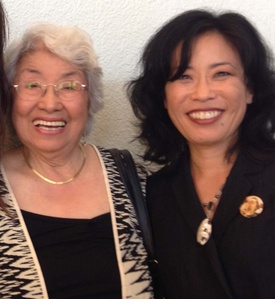
In singing her praises for Nisei activists like Yamada and Yasutake, Fujino continues to disrupt the traditional notion of this so-called “quiet” generation’s passivism. She extols those Nisei who transcend their own unjust histories to fight for dignity for all oppressed people, regardless of race or gender. As a scholar and historian, Fujino signals her mission to enlighten others to the risk-taking commitment of these unruly activists in order to offer a broader and more complete history of the Nisei generation.
The book ends with a poem from Yamada’s Full Circle that emboldens Nisei—now aging—and others to go out without remaining silent:
“I sing in / a voice I never / had / a lovely tune I just / made. / I will fulfill / every / single / ineffable / moment of life / left in my / body.”
In celebrating the invaluable contributions and capturing the jubilant voices of Nisei radicals like Yamada and Yasutake, Fujino adds her own illuminating voice to their songs of hope.
* * * * *
Join author Diane Fujino, activist-minister Ron Fujiyoshi, and community organizer Miya Sommers in a conversation around Fujino’s newest book, Nisei Radicals: The Feminist Poetics and Transformative Ministry of Mitsuye Yamada and Michael Yasutake hosted by the Japanese American National Museum on Saturday, June 5, 2021.
Click here for more information >>
© 2021 Sharon Yamato


